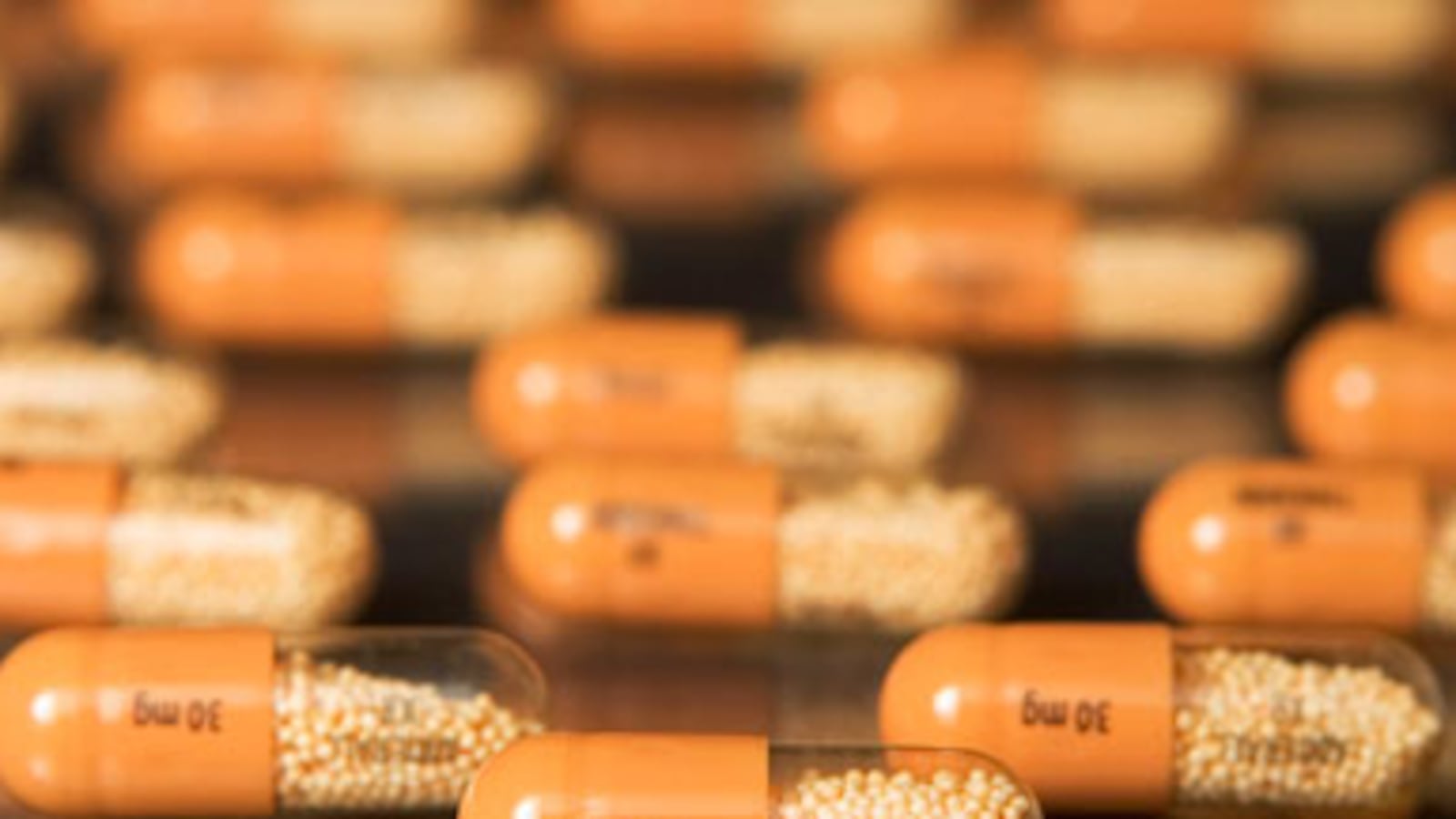Note to high achievers: Before you ask Santa for a stocking full of Adderall, a moment of caution. It may not work.
"Smart drugs" like Adderall and Ritalin are wildly popular on college campuses, particularly in the United States. They're prescribed for attention deficit disorder, but used, increasingly, by people without a diagnosis who are simply looking for a mental boost. And it's not just a college thing anymore—the use of stimulants is on the rise among adult professionals.
But beneath all the noise over whether the use of Adderall constitutes an unfair advantage for college kids and others, like doping in baseball, lies a surprise. Scientists are having a hard time showing that Adderall and Ritalin, when used as "smart pills," actually work.
In study after study examining the effect of the drugs on so-called healthy subjects, the findings have been underwhelming. At best, the drugs show a small effect; more often, researchers come up with negative findings—unable to show a clear-cut, across the board improvement on any of a wide variety of tasks, from those measuring memory, to mental flexibility, to concentration, to impulse control.
In a recent study at Dr. Martha Farah's lab at the University of Pennsylvania, researchers have added a new layer to the "smart pill" conversation. Adderall, they've found, makes you think you're doing better than you actually are.
Tell that to the respondents to a 2007 Nature survey. The magazine, foremost among the blue-chip science journals, conducted an informal poll on its own readership—most of whom are scientists, or scientists in training. Of 1,400 respondents, one in five reported they'd used drugs "to stimulate their focus, concentration or memory," in the absence of a medical diagnosis. A 2008 study by the National Survey on Drug Use and Health reported that 12.3 percent of Americans between 21 and 25 used stimulants for nonmedical purposes.
Those subjects who had been given Adderall were significantly more likely to report that the pill had caused them to do a better job.
Neuroethics, a field concerned with the questions of right and wrong that accompany progress in brain research, has swarmed around the issue of "cognitive enhancement." Adderall is conceived of as "an academic steroid." If some are taking it, will everyone with an interest in gaining an edge feel compelled to follow suit?
"Sometimes I think about how Marion Jones has to return all the prize money she earned while taking steroids, and I wonder whether I should be stripped of all the As I received for papers written on Adderall," Molly Young wrote in a personal essay for n+1.

But the results of the new University of Pennsylvania study, funded by the U.S. Navy and not yet published but presented at the annual Society for Neuroscience conference last month, are consistent with much of the existing research. As a group, no overall statistically significant improvement or impairment was seen as a result of taking Adderall.
The research team tested 47 subjects, all in their 20s, all without a diagnosis of ADHD, on a variety of cognitive functions, from working memory—how much information they could keep in mind and manipulate—to raw intelligence, to memories for specific events and faces. Each subject was tested both while on Adderall and on a placebo; in each condition, the subjects didn't know which kind of pill they were receiving.
The researchers did come up with one significant finding. The last question they asked their subjects was: "How and how much did the pill influence your performance on today's tests?" Those subjects who had been given Adderall were significantly more likely to report that the pill had caused them to do a better job on the tasks they'd been given, even though their performance did not show an improvement over that of those who had taken the placebo.
According to Irena Ilieva, the Ph.D. candidate who led the research team, it's the first time since the 1960s that a study on the effects of amphetamine, a close cousin of Adderall, has asked how subjects perceive the effect of the drug on their performance.
Of course, the finding that Adderall gives a person an inflated sense of productivity and accomplishment is not surprising—the drug unleashes the feel-good neurotransmitter dopamine, triggers the brain's reward system, and can produce a mild sense of euphoria. It feels great, so are we surprised that those who use it believe they've done a fabulous job?
What's interesting about the study's finding is that it dodges the trap that snares much of the research on stimulant medication. One reason it's hard to conclusively decide whether Adderall works as a " smart pill" is because its effects are so diffuse. Are we talking about concentration? Memory? Energy? Motivation? Creativity? All of these factors are related to cognitive enhancement, but they're difficult to disentangle. Researchers have plenty of ways to get at concrete, specific questions like how well subjects learn a list of digits and for how long they remember then. Much harder to measure scientifically is the advantage that one gains in the long term from a chemically induced zest for completing whatever task is at hand. "If you're actually finding that dry history book more interesting, then you will get it read in time for the test," said Farah.
But Farah's new study focuses in on the gap between what the subjects have achieved versus what they think they've achieved. This illusory feeling of benefit is an important finding in its own right. It stands independently from the complicating questions of how, precisely, Adderall lends a hand to those who are taking it nonmedically.
Interestingly, when Farah set out to investigate the effects of smart pills like Adderall, she wasn't wondering if they worked. "I assumed they did," she said. Now, she said, "There's a huge, obvious empirical question here: Are they really helping?"
Casey Schwartz is a graduate of Brown University and has a master's degree in psychodynamic neuroscience from University College London. She has previously written for The New York Sun and ABC News. Currently, she's working on a book about the brain world.






